Rewilding and wildlife comeback are raising the profile of the Oder Delta as a nature tourism destination. By equipping local nature guides with the right skills and tools, the South Baltic Nature Guide Network is improving livelihoods, enhancing the tourist experience and ensuring sustainability.
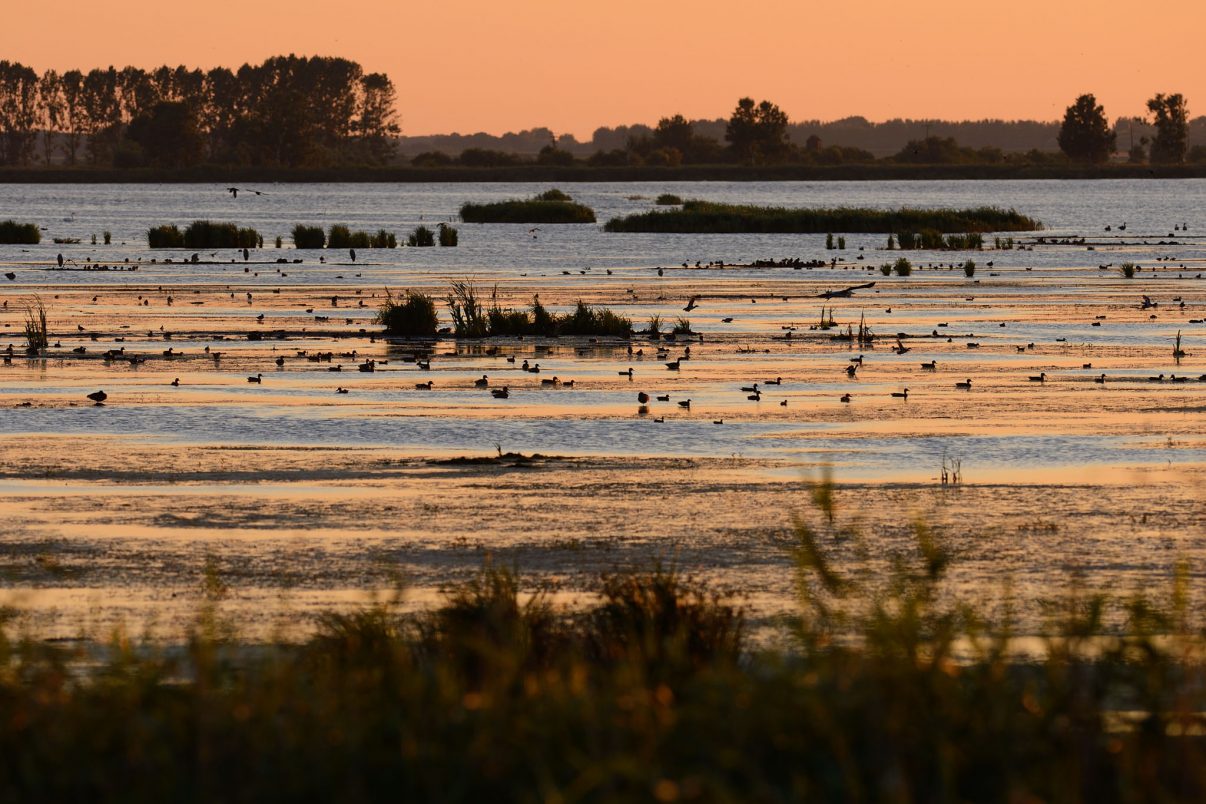
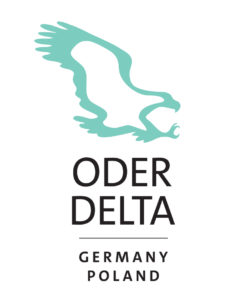 Stimulating nature-based tourism
Stimulating nature-based tourism
One of Rewilding Europe’s core objectives is to use nature recovery as a way to stimulate and support economic development. In the Oder Delta, which straddles the German-Polish border, our efforts to restore fish populations and support wildlife comeback are complemented by work with local partners to develop a network of nature guides, wildlife watching tours and hides, accommodation and other nature-based enterprises.
“Thanks to rewilding efforts wild nature is increasingly thriving in the delta,” says Rewilding Oder Delta project officer Katrin Schikorr. “By using this nature to create income and jobs, we can generate further support for rewilding.”
Essential guides
One group of people who can benefit economically from rewilding and wildlife comeback are nature guides. They also play a key role when it comes to balancing the demands of tourism with the need to protect wild nature.
“As tourism takes off in the Oder Delta, so the need for well trained guides is increasing, in Germany as well as in Poland,” says Stefan Schwill, Chairman of the Rewilding Oder Delta board. “They can help tourists to explore natural areas in a sustainable way, without disturbing wildlife.”
A burgeoning network
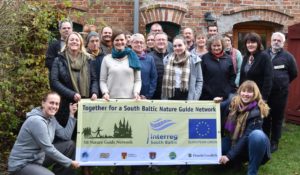
The Oder Delta is one of the focus areas of the South Baltic Nature Guide Network, which was set up in 2018 by six organisations, including NGOs Deutsche Umwelthilfe (DUH), HOP and TPRIiG, who are all long-term partners of Rewilding Oder Delta.
With funding provided through the European Union’s Interreg South Baltic Programme, the aim of the network is to support and train professional nature guides, and help them to secure a better livelihood.
Under the framework of the network a group of around 20 German nature guides took part in a five-day training workshop in the village of Trittelwitz in the Peene Valley at the beginning of November last year.
The training, which was delivered by a number of experts, encompassed talks on numerous topics, including business, marketing and law, communications, and a range of outdoor activities.
Knowledge exchange
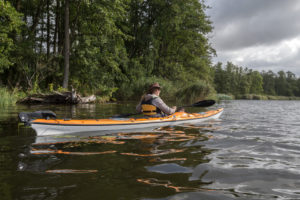
Nature guide Janina Pankratz, who has been involved with the South Baltic Nature Guide Network since the beginning of 2019, frequently guides visitors through the varied landscapes of the Oder Delta on the German side.
“As the Oder Delta becomes wilder, so opportunities for nature guides are gradually increasing,” Pankratz says. “The network is really valuable because it allows you to exchange information and learn from other guides. If you want to set up your own website, for example, or make your tours more interesting, all you have to do is to reach out for tips and advice. It makes you feel part of a bigger movement.”
Building momentum
Launched recently, the informative South Baltic Nature Guide website is still under development. It will soon feature the profiles of local guides, allowing visitors to the Oder Delta and other network focus areas to contact and book them directly.
At the end of April the network project team and a number of guides from Germany, Poland and Lithuania will gather near Anklam on the River Peene to discuss the next steps for the network, including how to make nature guiding a more economically feasible livelihood.
The draw of the delta
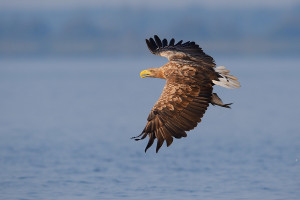
Situated at the edge of the Baltic Sea, the Oder Delta might not might not seem like an obvious place for a holiday. Yet thanks to rewilding efforts and subsequent wildlife comeback, this unique jigsaw of continental, marine and freshwater ecosystems is today becoming increasingly well-known as a top European nature tourism destination.
This is now a place where a growing number of people come to spot the so-called “Big Seven” – the white-tailed eagle, grey seal, beaver, elk, Atlantic sturgeon, wolf and European bison.
Want to know more?
- South Baltic Nature Guide Network website
- Rewilding Europe’s work in the Oder Delta
- Rewilding Oder Delta Facebook page
